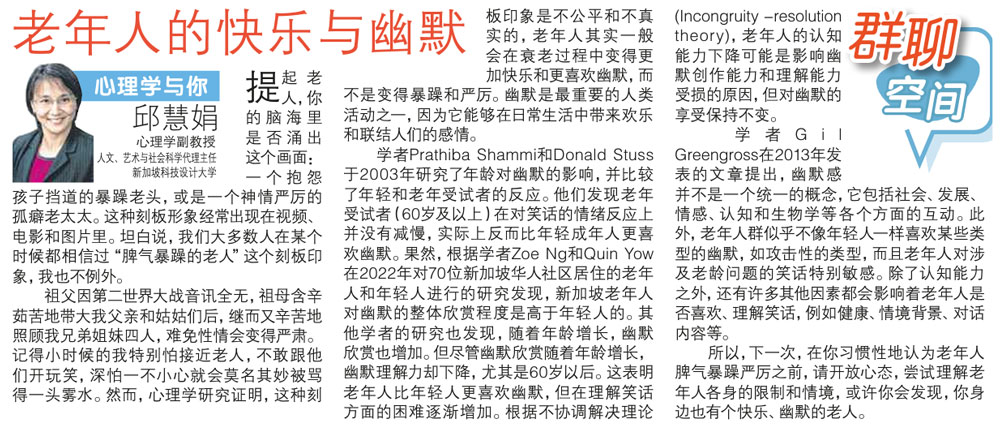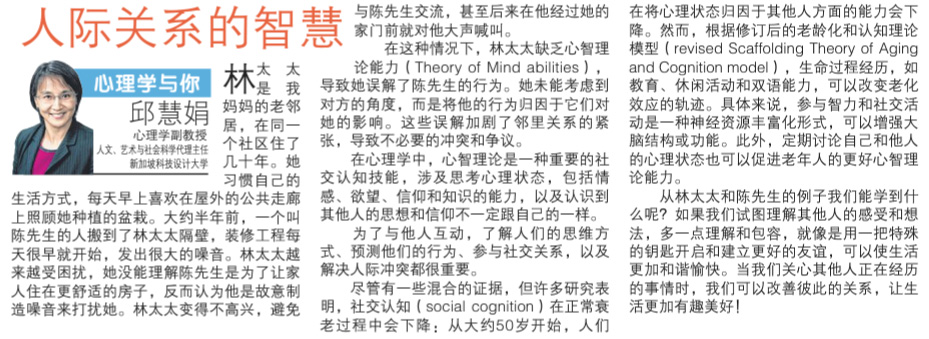Inter-personal Wisdom
Inter-personal Wisdom
11 Nov 2023

Shin Min Daily News, 11 Nov 2023, 人际关系的智慧
(translation)
Mrs Lin, my mother’s old neighbour, has lived in the same community for decades. She is accustomed to her own lifestyle and likes to take care of the potted plants she grows along the common corridor outside her home every morning. About half a year ago, a man named Mr Chen moved in next door to Mrs Lin. The renovation work started very early every day and created a lot of noise. Mrs Lin became increasingly troubled. She failed to understand that Mr Chen wanted his family to live in a more comfortable home and instead believed that he was deliberately making the noise to disturb her. Mrs Lin became unhappy, avoided communicating with Mr Chen and even shouted at him as he walked past her door later on.
In this case, Mrs Lin’s lack of ‘theory of mind’ abilities caused her to misunderstand Mr Chen’s behaviour. She fails to consider the other person’s perspective and instead attributes his actions to the effect they have on her. These misunderstandings exacerbate tensions between neighbours and lead to unnecessary conflicts and disputes.
In psychology, theory of mind is an important social cognitive skill that involves the ability to think about mental states, including emotions, desires, beliefs and knowledge, and to recognise that other people’s thoughts and beliefs are not necessarily the same as one’s own.
In order to interact with others, it is important to understand how people think, predict their behaviour, engage in social relationships and resolve interpersonal conflicts.
Although there is some mixed evidence, many studies suggest that social cognition declines during normal ageing: starting around age 50, people decline in their ability to attribute mental states to other people. However, according to the revised Scaffolding Theory of Ageing and Cognition model, life’s experiences, such as education, leisure activities and bilingualism, can alter the trajectory of ageing effects. Specifically, engaging in intellectual and social activities is a form of neural resource enrichment that can enhance brain structure or function. Additionally, regular discussion of one’s own and others’ mental states may also promote better theory of mind abilities in older adults.
What can we learn from the example of Mrs Lin and Mr Chen? If we try to understand other people’s feelings and thoughts, be more understanding and tolerant, it is like using a special key to open and build better friendships, which can make life more harmonious and enjoyable. When we care about what other people are going through, we improve our relationships with each other and make life better and more interesting!

